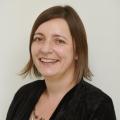How is Henry VIII like Nigel Farage, what should every Norfolk schoolchild should know about their county and why has David Starkey become an expert on childbirth? Rowan Mantell interviewed the famously controversial historian ahead of his visit to King’s Lynn this month.
David Starkey is one of the foremost historians of our time – and almost as well-known for his intermittent impressive rudeness as his indisputable intellectual rigour.
This month he celebrates his 70th birthday and returns to King’s Lynn to talk about some of his favourite characters from history – the Tudors.
For David, history is not just about other people, living long ago, but also about us, and now.
He wants to know why this family of monarchs, megalomaniacs, minstrels, ministers and murderers still fascinates us.
And he believes (spoiler alert) that it is because the Tudors are the first monarchs we would recognise, and because we live with so many consequences of, and parallels to, their actions.
“The reason why we think we know them is because we do know them,” says David. “If you had the misfortune to see Henry VIII walking down the street, you would know him.
“Thanks to the extraordinary work of painters like Holbein we actually know what our monarchs looked like for the first time.”
And thanks to the extraordinary work of historians like David Starkey those familiar faces are fleshed out with real personalities.
“These people were as alive as we are,” he says.
But they have also taken on the power of myths. “Henry VIII is England’s Bluebeard – but much more terrifying. With Bluebeard you have vague stories of wives meeting horrid ends. Whereas with Henry we know down to the last detail exactly what happened.”
And he recounts, with pathos, the dreadful final evening of Anne Boleyn – the Norfolk-born Queen who was told the exact details of her execution the night before she died.
In King’s Lynn, this month, David will go on to talk about why Henry VIII and Nigel Farage are similar. (Another spoiler alert – Henry was not fond of England being governed from mainland Europe.)
David has a gift for making characters from history spark with personalities which could exist today.
He is a regular visitor to Lynn, where he is a vice president of the King’s Lynn Festival, and at one point planned to settle here.
“Lynn of course is remarkable town,” he says. “It is one of the places where the 16th century is nearest to the surface. Although there is a big overlay of the huge prosperity of the 18th century, there’s a real sense of the 16th century here. And something that tells you how very important King’s Lynn was is the size of its custom house.”
“Although I didn’t end up in East Anglia I do have strong links,” he says.
Born in Cumbria, he went to grammar school and won a scholarship to Cambridge. He became a university history lecturer and researcher, before reaching a much wider audience as a radio and television pundit and documentary presenter.
His television work includes acclaimed series about Henry VIII, Elizabeth I, the monarchy in general, and the Churchill family.
This year he will present television documentaries on the 800th anniversary of the Magna Carta and, with fellow historian and presenter Lucy Worsley, the christening of the future Edward VI. This includes research into Tudor childbirth and David insists: “I actually know a great deal about childbirth, although purely academically, and not the gory bits!”
Our conversation is punctuated by peals of laughter from David. He is hugely enthusiastic and hugely erudite. It’s a heady combination. But wasn’t this charming man, conjuring figures from history into actual human beings as we chat, once dubbed “the rudest man in Britain”?
Well, yes he was, and it was a great career boost. “It was very valuable!” he laughs. As shocked friends commiserated, he predicted the phrase would be worth £100,000 to him in fees for new projects and appearances. “And that’s proved to be an underestimate!” he says gleefully.
On January 3 he celebrates his 70th birthday. “Although I made a big thing of my 50th birthday and my 60th birthday, I haven’t about my 70th. It’s not that I’m remotely worried about trying to conceal it from my adoring public - but I have been so busy! I operate in the world of television, which is, on the whole, a younger and younger person’s metier, but I still seem to be asked to do things.
“I tend to use the force of my personality as a way to get to say things that are unsayable but need to be said. And I think public opinion might have caught up with Dr Rude on a very wide range of issues.”
One of his extensive stable of hobby horses is education.
So what should every Norfolk schoolchild know about the history of their county?
“I think that what they should know is something,” he say, suggesting teachers could be led by the local history all around them.
“In Norfolk you have the whole extraordinary story of Walsingham.
“And you can see the wealth that was generated by agriculture. Agricultural changes thrilled people in the same way that IT does today.”
But although he can transform figures from history into vivid characters in television documentaries (and on lecture tours) he does not dream of meeting them in their own time.
“I have no desire whatsoever to live in any time other than the mid 20th century and early 21st century and the simple reasons are medicine and dentistry. Can you imagine what even the most basic dental problem would have been like?
Join Dr David Starkey, getting his 21st century teeth into the Tudors at the King’s Lynn Corn Exchange on Friday, January 16. The Tudors and Us begins at 7.30pm.
King’s Lynn Corn Exchange, Tuesday Market Place, King’s Lynn, PE30 1JW. 01553 764864. www.kingslynncornexchange.co.uk




























